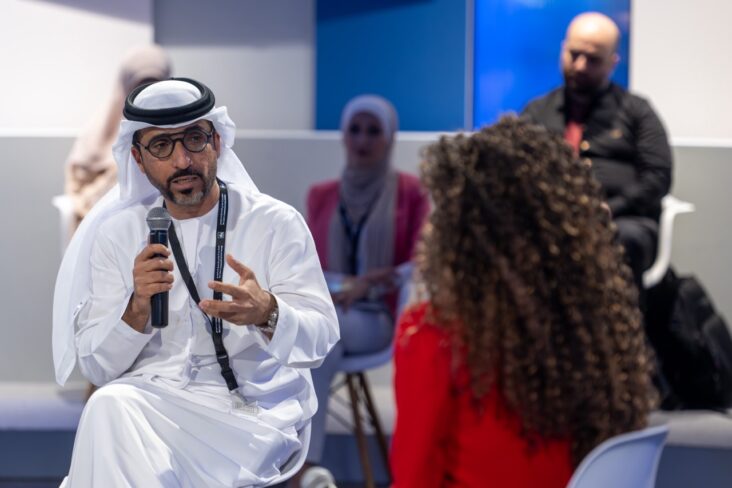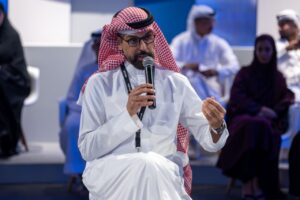Dialogue-Driven Communication In A Digital Era Is Key, Experts Emphasise At IGCF 2024

On the second day of the 13th International Government Communication Forum (IGCF 2024), organised by the Sharjah Government Media Bureau (SGMB) at Expo Centre Sharjah, media experts put the spotlight on the growing influence of digital platforms, emphasising the importance of government officials engaging directly with the public to ensure their messages are not only conveyed but also understood and trusted.
The ‘Government Communication… The Pillar of Resilience and Responsiveness’ session, held in “Our Youth, Our Wealth” Platform in cooperation with Derayah and Arab Youth Center, featured Professor Mohammed Al Hammadi, Emirati writer, journalist and media professional, Ammar Taqi, media professional, and moderated by Hind Khlaifat, media professional and General Manager of Deraya for speakers.
Speakers highlighted that government communication has transcended traditional methods in today’s interconnected world, as the rise of social media, citizen journalism, and viral content has created a rapidly evolving communication landscape for governments to navigate. They emphasised the necessity for Arab government officials to bridge the gap that separates them from the public.
Mohammed Al Hammadi opened his remarks by highlighting the distinction between successful and failing governments, stressing that flexibility and quick response are the determining factors in effective communication. He noted: “Governments need to prioritise transparency in information delivery, as the right to knowledge and communication is a fundamental principle enshrined in international agreements. Leaving the public uninformed or without a clear direction only fuels confusion. Therefore, government officials must demonstrate the courage to be adaptable and promptly address misinformation and clarify misunderstandings, especially during crises.”
Ammar Taqi said that one of the central issues in government communication is the concept of control. Governments often strive to control narratives, maintaining a distance from difficult conversations. However, when officials avoid direct confrontation with the public or fail to address concerns transparently, they create a barrier that can foster distrust and misinformation. Therefore, governments must shift from simply broadcasting information to engaging in dialogue.
Taqi said: “I believe that training government officials to share sensitive information effectively is very important to avoid conflicts. Also, governments must invest in creating platforms that speak directly to the public. Officials should always be accessible to the public, especially during crisis situations.”
The panel also focused on the importance of human connection and its impact. Governments should leverage this by fostering open communication channels where citizens feel heard and valued.
In conclusion, the panel summarised that governments today must embrace a new era of communication—one that is open, transparent, and responsive to the public’s needs. By breaking down barriers and fostering dialogue, officials can build stronger relationships with their citizens, paving the way for more effective governance.



